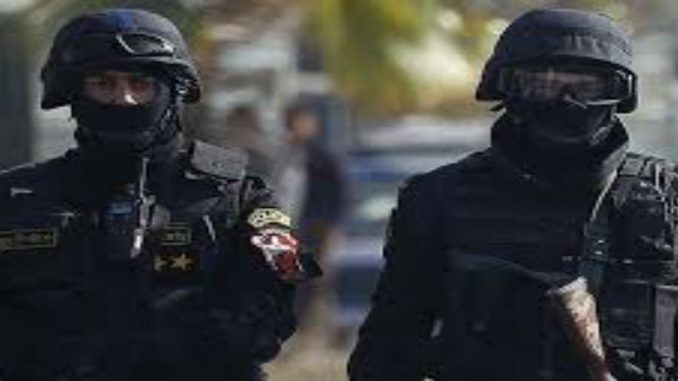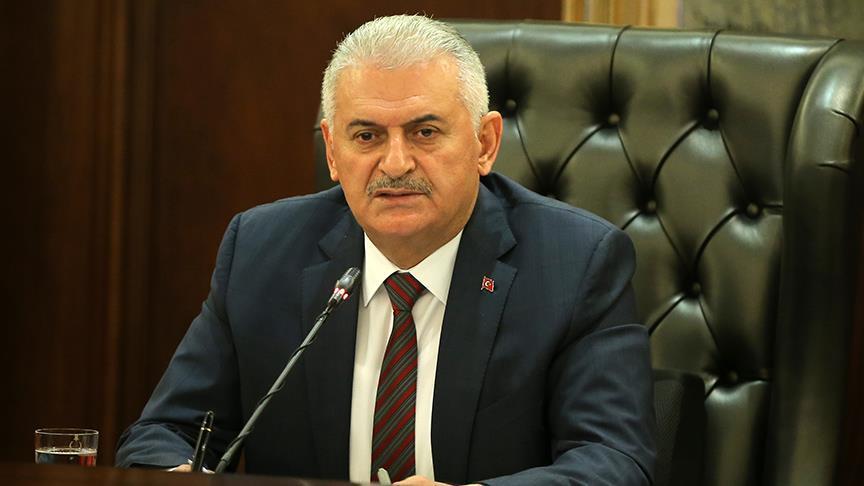
Egypt’s Interior Minister Magdy Abdel Ghaffar issued instructions for secret police to be deployed in Egypt’s streets and public squares to monitor and curtail any instances of criminal intent as Egypt is already under a state of emergency in the aftermath of two deadly attacks that targeted churches in Tanta and Alexandria.
Ghaffar issued these instructions during a meeting at the beginning of the week which was attended by high-ranking police officials, according Al-Ahram, an Egyptian state-owned newspaper.
According to the daily gazette, the meeting discussed new plans by the Interior Ministry to secure streets and public squares by intensifying Egypt’s security presence, in addition to spreading secret police operators throughout streets.
However,this move has raised questions about the nature of their work and how they will carry out their instructions.
As a result, a number of political figures and social media users have expressed their fears about how secret police operators will monitor suspects, as past experience of similar security protocol has often led to human rights violations in the name of national security.
Former assistant to the Interior Minister, Mohamed Nour al-Din, said, “The secret police is not a new invention by any means; they have been present since police forces were first stationed in Egypt. These operators contributed to effectively anticipating terrorist attacks, vandalism, assault and other cases of criminal intent by monitoring suspects and providing their leaders with the information gathered.”
On the nature of their work, Nour al-Din said the secret police do not have the authority to directly arrest citizens; the operators must first carefully monitor anyone suspicious to build up a substantial case against them which they may then forward to their superiors to take further measures.
He also noted that police officers,under the current state of emergency,have the authority to question anyone they find suspicious and search their person and belongings, asserting that these measures will not negatively affect Egyptians’ personal freedoms.
Nour al-Din said,”Rather, these measures effectively contribute to protecting Egypt’s national security.”
According to Al-Ahram, the Interior Ministry announced that these measures are for the sake of protecting Egypt’s main cities due to the unprecedented challenges that face the nation. The country’s national security will be enhanced through the stationing of ground armed forces in the streets and public squares to help curb any reported attacks.
On the other hand,concerning people’s heightened fear of random arrests, Professor of Constitutional Law Fathi Fekari recently said on privately-owned TV channel MBC Masr that any arrests based solely on suspicion are constitutionally illegal without a warrant.
Fekari added that the Higher Constitutional Court had issued a verdict stipulating that no security personnel has the authority to arrest anyone due to their suspicions without a proper case.
On the contrary, member of the National Council of Human Rights Nasser Amin said it is likely that police violations against citizens will be on the rise with the advent of increased security presence around the country.
He said,”Police forces, whether ground personnel or secret police operators, do not have the authority to arrest or search anyone based on suspicion – even under a state of emergency.” He stressed,” According to the law, all they can do is arrest someone in flagrante delicto [caught red-handed].”
Egyptian law and the Constitution clarify that it is illogical to arrest or search someone based solely on suspicion; security personnel are only authorized to arrest a criminal who has been caught in the act of committing an offense, as he explained.
In fact, several political figures and rights activists expresses the same fears about the possibility of a resurgence in violations against citizens,with the application of Emergency Law nationwide, such as extrajudicial killings; random arrests; and illegal searches without seeking proper authorization from the prosecution.
Since al-Sisi took power in a military coup against Egypt’s first democratically elected President Mohamed Morsi,the Egyptian government has launched a massive crackdown against political opposition, lawyers,journalists and human rights group.
Human rights organisations stated that around 60,000 were imprisoned between 2013 and 2017. To accommodate them, the Egyptian authorities decided to build 10 additional prisons.
In a press release, Amnesty international said that the Egyptian authorities must address sectarian violence, not abuse emergency powers to further curtail rights.
It stated that the emergency measures included in a declaration of a state of emergency by Abdel Fatah al-Sisi in the aftermath of three deplorable church bombings in Egypt “will do little to resolve the root causes of sectarian attacks against Copts in Egypt and are likely to lead to a further deterioration in human rights.”
Najia Bounaim, North Africa Campaigns Director at Amnesty International said,”The deadly church attacks demonstrate an appalling disregard for human life and must be utterly condemned. Nothing can justify a horrifying attack on ordinary citizens attending a place of worship.”
She added,”It is the duty of the Egyptian authorities to protect the lives and safety of its population, but the solution is not to continue and intensify curtailing what little freedoms remain in Egypt. Addressing sectarian violence requires genuine political will to end impunity and provide protection.”
Bounaim said,”Egypt has a decades-long history of relying on emergency measures which grant security forces sweeping powers to commit human rights violations unchecked, leading to arbitrary detention, torture and other serious violations.”
Amnesty also said that the most worryingly that,”the Emergency Law allows the authorities to try individuals before the flagrantly unfair Emergency State Security Courts which do not allow for the right to an appeal.”
“States of emergency can never be allowed to excuse violations of non-derogable rights. Torture, unlawful killings, enforced disappearances, and arbitrary detention cannot be made lawful by declaring an emergency,” said Najia Bounaim.



